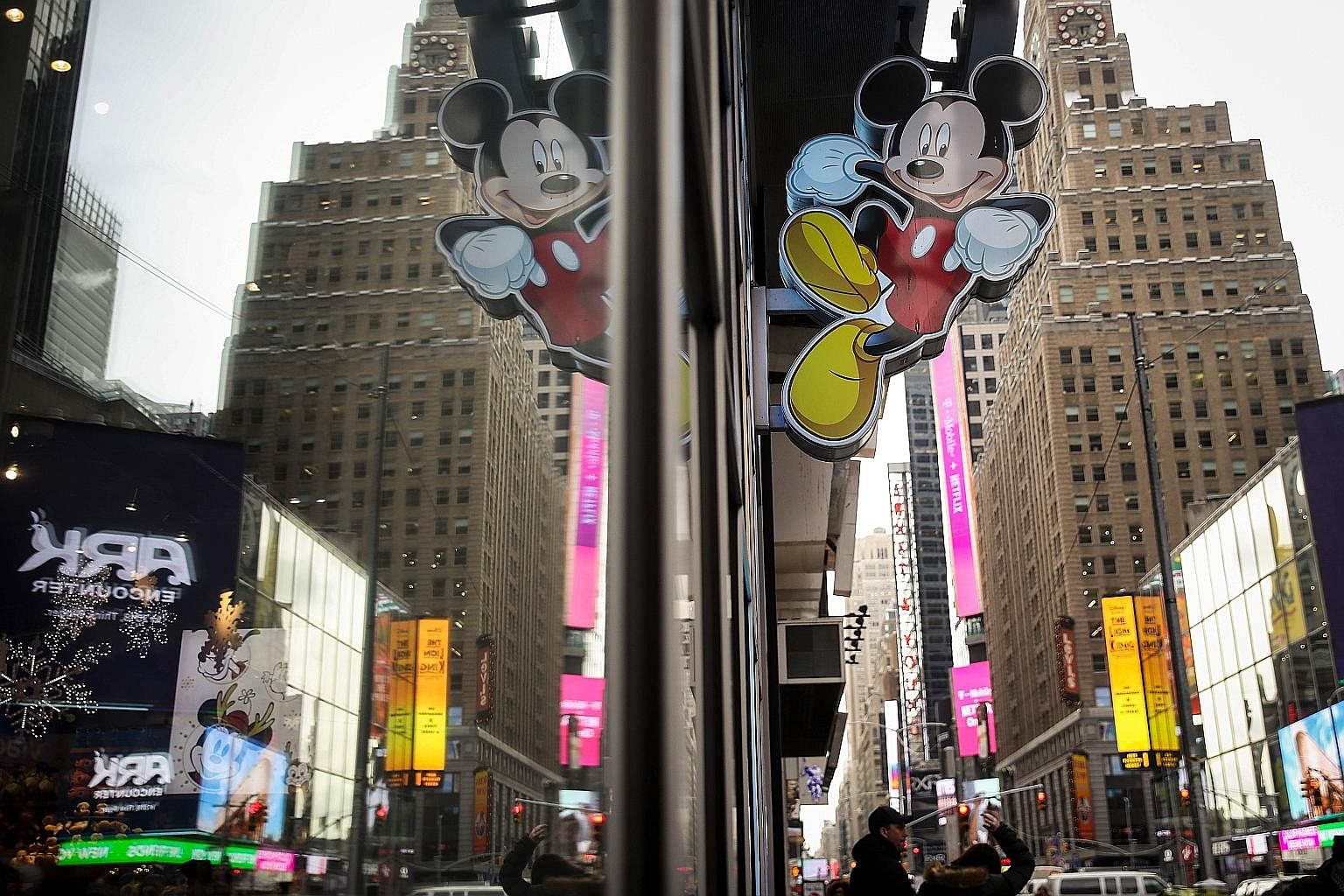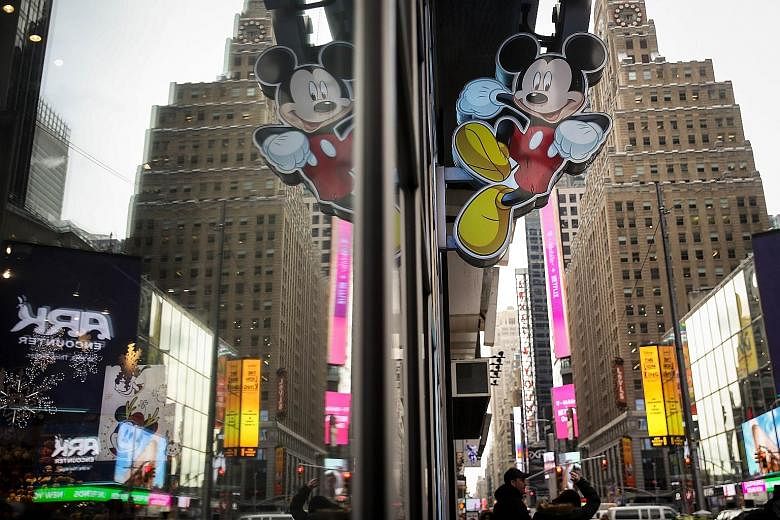LOS ANGELES • In his 12 years atop the world's largest entertainment company, Walt Disney Co chief executive officer Robert Iger has made plenty of bold acquisitions.
His latest big-ticket purchase of the bulk of 21st Century Fox, while definitely bold, has one key difference.
More than half of the deal's US$66.1 billion (S$89 billion) price tag, including debt, comes from Fox properties still tethered to traditional TV models at a time when the economics underpinning the industry are being challenged like never before. Disney is doubling down on broadcast and cable just as streaming services like Netflix and Amazon rewrite all the rules.
"It's a reflection of how weakened the traditional TV ecosystem has become and the importance of getting both content libraries and strong producers of new content," said Mr Stephen Beck, founder of management consultancy CG42.
How it all pans out will prove Mr Iger either a TV-industry visionary or vestige of old Hollywood.
The executive, 66, said on a conference call with analysts that it's precisely because consumers' viewing habits are changing that he's doing this deal.
Fox, Mr Iger said, brings him a library with thousands of movies and TV shows - from X-Men to Avatar, This Is Us to Homeland - that he can use to fill the pipes of a new generation of TV services.

In that sense, the Fox deal is in line with a strategy that worked well with Mr Iger's other conquests. The US$15 billion acquisition spree that put Pixar, Marvel and Lucasfilm under Disney's roof all came with treasure troves of franchise characters that turned its film division into the top-grossing studio in the US box office last year.
Yet Disney's financial results are suffering from the impact of cataclysmic shifts in consumer behaviour. Its TV division was once the envy of the industry thanks to networks like ESPN and the Disney Channel, but the unit has seen its operating income slide 11 per cent in the past two years.
ESPN, the biggest slice in America's cable bill, has lost 12 million subscribers since 2010.
Meanwhile, programming costs, especially for sports, are rising while ratings tumble across the board.
The worsening fortunes of Disney TV is one reason the company's share price has trailed the market for the past two years. At about US$110 per share, the stock is still 9 per cent off its 2015 high.
With the Fox acquisition, Disney will try to turn that around. In addition to traditional TV assets, Disney also is getting a bigger stake in Hulu, boosting its share to 60 per cent from 30 per cent, and will gain control of Hotstar, an online video business in India.
The costliest piece in the Fox deal are the regional sports networks, 22 local channels . Those channels account for US$22 billion of the total acquisition value, according to Guggenheim Partners analyst Michael Morris.
Next up, Mr Morris says, are Star India and Fox's other international TV businesses, together valued at US$13.7 billion.
Mr Iger, who simultaneously announced a contract extension through 2021 to help see the deal through, said he never planned to completely abandon traditional TV.
Channels included in the Fox transaction, like FX and regional sports networks, still have a long life ahead of them, he said.
And if things get so bad that cable packages do go the way of the milkman?
"We'd be well positioned to, in effect, flip a switch," Mr Iger said.
Disney could "distribute those programmes and those channels direct to the consumer through the platforms we've created".
Maybe, but history has shown it's awfully difficult for old business models to adapt so quickly - if ever.
BLOOMBERG

